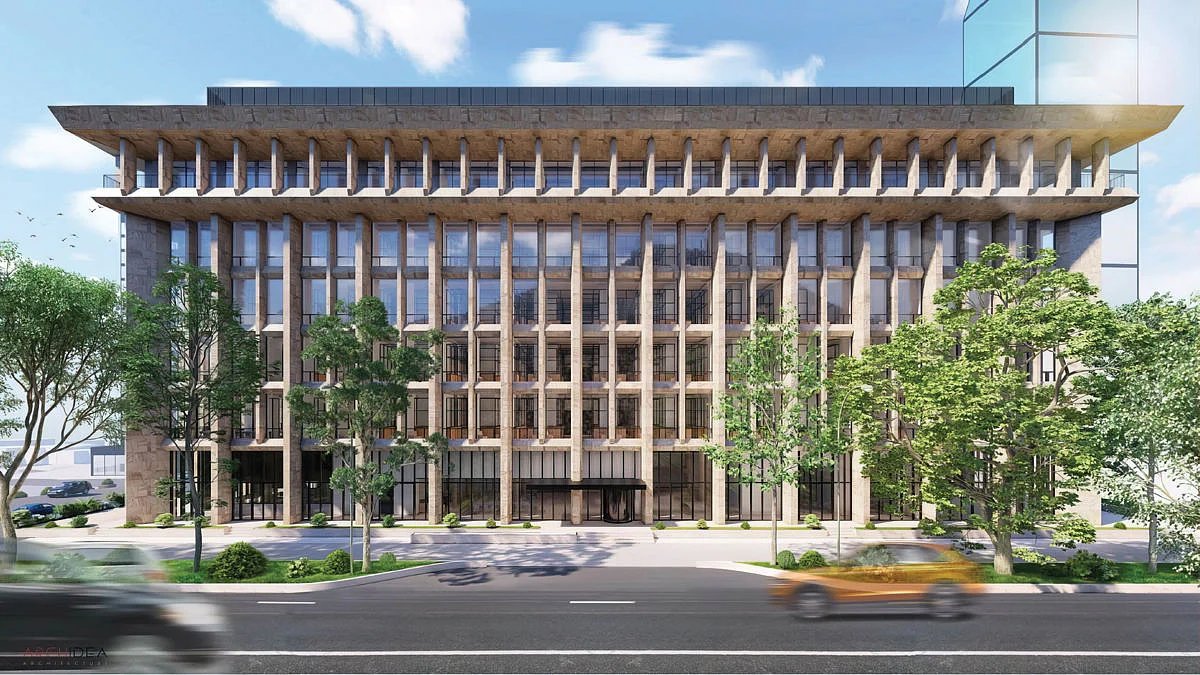Hotels & Accommodations
Targeted by the right, Britain’s asylum hotels are places of fear and disorder. Bad political decisions made it so | Daniel Trilling

A broad section of Britain’s right has spent the summer behaving as if it would like a repeat of last year’s racist riots. As politicians and commentators cry “tinderbox Britain” – are they warning us, or willing it on? – far-right extremists have been actively trying to stoke violence. This year, they have pinned their hopes on asylum hotels, an issue where public fears over crime, immigration and the welfare state conveniently converge.
In some places, far-right activists have piggybacked on protests prompted by local grievances. The most significant this year was in Epping, Essex, after an alleged sexual assault by an asylum seeker led to demonstrations that turned violent when they were joined by members of various far-right groups. A similar pattern has unfolded in London’s Canary Wharf, after untrue rumours that some of the Epping hotel residents were being moved there. In other cases, far-right activists have themselves organised the protests. A call has gone out among their online networks for gatherings this weekend in several parts of England.
It is unlikely – though not impossible – that the end result will be on the scale of the riots we saw last summer, since that was triggered by a shocking act of murder followed by widespread misinformation and conspiracy theories about the identity of the killer. But anti-fascist campaigners I’ve spoken to believe it may cause lower-level disturbances like those seen in Epping and in Knowsley, Merseyside, in 2023, and it will certainly help ensure that asylum hotels remain a contentious topic for many months to come.
One question, however, often goes unanswered: why are asylum seekers being accommodated in hotels in the first place? Before 2020, the phenomenon hardly existed, yet by its peak in 2023 there were more than 55,000 people in hotels, waiting many months to have their asylum claims processed. (Today the number has dropped to about 30,000.)
For some, the answer will be: “because there are too many people seeking asylum in the UK and we don’t have the resources to support them”. This is misleading. Although Britain has seen higher numbers of asylum applications in recent years, according to Oxford University’s Migration Observatory they are not exceptional when compared with those of other European countries. Yet the UK relies on costly hotel accommodation far more heavily than any of its neighbours.
A series of actions by both Labour and Conservative governments since the turn of the century has brought us to this point. The first was the decision by Tony Blair’s government to make people seeking asylum heavily reliant on state support. Until mid-2002, asylum seekers could take up jobs if they had to wait more than six months for an initial decision on their asylum claim. Much of the press disliked this, saying it allowed asylum seekers to take other people’s jobs. So the government in effect banned them from working. (In many other European countries, people seeking asylum are still allowed to work after a waiting period.)
If a government bans people from working then it needs to provide them with essential support, unless it is happy for them to starve to death on the streets. At first, accommodation was largely provided by local councils’ housing departments. But politicians took a second decision, which was to privatise the accommodation. This began in the late 2000s, but the really important step was taken by David Cameron and Nick Clegg’s coalition government.
In 2012, as part of the coalition’s wider austerity drive, asylum accommodation was outsourced to the same profit-driven contractors that now run many of our public services. The contractors often failed to provide decent housing or value for money and the government had to rewrite the contracts. Even then, problems persisted: by the end of the decade, it was becoming increasingly common to house asylum seekers in “contingency accommodation” such as short-term lets and hotels.
The third decision, taken by the governments of Boris Johnson, Liz Truss and Rishi Sunak, was to sabotage the asylum system itself. During the first Covid lockdown in 2020, people seeking asylum were placed in hotels – which, at the time, were largely empty anyway – for public health reasons. This coincided with a rise in the number of people crossing the Channel by small boat, as opposed to stowing away in lorries as they had largely done previously. (Many people who choose such routes do so because they do not have the option of a safe resettlement scheme, such as the one the UK has offered to Ukrainian refugees.)
The Conservative government encouraged hostility towards small boat journeys, describing them as an “invasion”. Instead of moving asylum seekers out of hotels and into more suitable accommodation when the pandemic subsided, it kept them there while it built prison-like encampments as an alternative. (These schemes mostly never got off the ground.) At the same time, it allowed a backlog of asylum applications to grow – and then tried to ban many asylum seekers from claiming asylum at all, saying it would instead deport them permanently to Rwanda. (That scheme never got off the ground either.)
All the above has led to more asylum seekers living in more hotels for longer, in more parts of the country. At its root, it is a story of public penny-pinching and market forces causing a problem that is then made worse by politicians promising a quick fix or finding a convenient scapegoat. If that sounds familiar then perhaps it’s because it’s a story we also find in our hospitals, schools and wider communities.
This could be an occasion to ask what has gone wrong with the state more generally, and to talk about what could be done to make it work better for everyone. Keir Starmer’s government has promised to end the use of hotels by 2029, by investing in the asylum system and reducing small boat journeys. But if it is unwilling to have that wider conversation, then the right is ready with its own seductive, destructive answers.
Hotels & Accommodations
Hotels Urged to Hire Workers with Disabilities

“The Olympic Wage ordinance threatens the existence of small businesses like ours,” said Gregory Plummer, Alliance member and CEO and managing partner of Concord Collective. “This isn’t just a challenge for employers—it’s a risk to the jobs of the workers this ordinance is meant to help.”
The Los Angeles tourism industry already pays among the highest wages in the country and economic analyses estimate the ordinance could result in nearly 15,000 job losses, the Alliance said in a statement. Combined with reduced travel demand, the ordinance puts the tourism sector at risk.
Mark Beccaria, partner at Hotel Angeleno in West Los Angeles, said hotels support both tourism and local workers and their families.
“These new regulations will force many of us to fight to keep our businesses alive, putting thousands of jobs and livelihoods in jeopardy,” he said. “My hotel is a family-owned business. We have been an economic driver for the community. Our hope is to keep our doors open and survive this challenge for the next generation.”
Los Angeles residents want a chance to weigh in on the wage ordinance, said Rosanna Maietta, president and CEO of the American Hotel & Lodging Association.
“The travel and hospitality industry in Los Angeles is still recovering after being decimated by challenges and emergencies,” Maietta said. “We call on the county to respect the democratic process and swiftly and transparently count our signatures and certify the referendum.”
Poll: Job losses loom
A poll by the Center for Union Facts, conducted June 17 to 22 among 507 registered voters in Los Angeles County, found that 54 percent believe the $30 minimum wage will lead to job losses in the hotel industry, including 55 percent of voters in union households. In total, 91 percent said the increase would raise lodging costs for consumers. Respondents also said the policy could affect the city’s ability to attract tourism during the 2028 Olympic and Paralympic Games.
“Despite repeated efforts, the city ignored the voices of small businesses who shared, again and again, their struggles to survive in a post-pandemic economy,” said Maria Salinas, president and CEO of the Los Angeles Chamber of Commerce. “I join small businesses united in protecting jobs and the tourism economy that supports more than half a million jobs throughout the city.”
Alec Mesropian, advocacy manager for BizFed, said thousands of Angelenos have warned the wage hike will force small businesses to close, cost up to 15,000 jobs and cut $169 million in tax revenue—yet those concerns have been ignored.
“We’re not against fair pay, but pushing a nearly 60 percent increase without a sustainable plan puts livelihoods, businesses and L.A.’s tourism economy at risk,” he said. “That’s why we’re standing up for workers, employers and the guests who depend on a stable tourism industry.”
“Angelenos deserve a say on policies that could jeopardize jobs, the economy and the city’s ability to deliver services,” said Nella McOsker, president and CEO of the Central City Association. “Amid a budget crisis and declining hotel and sales tax collections, now is not the time to weaken revenue sources or an industry that employs tens of thousands.”
“The tourism wage is economic self-destruction—closing businesses, killing 15,000 jobs and cutting $169 million in tax revenue at a time when the city is struggling to keep streetlights on,” said Stuart Waldman, president of the Valley Industry & Commerce Association. “If the city wants to cause a financial meltdown, the least it can do is let taxpayers vote.”
In May, the L.A. City Council approved a wage ordinance requiring hotels with more than 60 rooms and LAX businesses to pay $30 an hour by 2028, despite concerns over declining international travel. AHLA urged the council to veto the measure, warning it could affect the city’s tourism.
Hotels & Accommodations
How A Former Central Post Office In Tbilisi Transformed Into One Of The City’s Swankiest Hotels

The Telegraph Hotel’s location on Rustaveli Avenue is fortuitous as well, as the street is home to many cultural institutions, such as the Georgian National Gallery, the Georgian Museum of Fine Arts, the Rustaveli Drama Theatre, the Zurab Tsereteli Museum of Modern Art, the Kashveti Church, the Tbilisi Conservatory, the Tbilisi Opera House, and the Georgian National Museum.
Hotels & Accommodations
5 new hotels in Sri Lanka to bookmark for your next holiday

Located in Kegalle district in Sabaragamuwa Province, roughly 120km from Colombo, Rambukkana is a quiet agricultural town. Here, the recently-restored Jetwing Wahawa Walauwa is a luxurious all-suite boutique villa dating back to the 1870s. Carefully restored by PW architects, headed by Phillip Weeraratne and architect Lakmith Fernando, who took this on as a personal project, the two-storey property features just six rooms (four grand suites and two junior suites) filled with curated furniture, art and old Sri Lankan flags. ‘Walauwa’ means large house and was earlier used in reference to homes of local aristocracy. The seven-acre property is set amidst plantations of spices like cardamom and cinnamon and fruits like mango and rambutan. Each suite is expansive with a four-poster bed, hand-carved wood furniture and a separate living, bedroom, and bathroom space with a bathtub. A dedicated personal butler is on hand throughout your stay. All meals are served at the large open-style dining hall that overlooks the pool with some alfresco seating as well. Meals are à la carte, and you can choose from a menu that offers an interesting mix of Sri Lankan local fare like the banana leaf wrapped fish, local organically grown rice, and hot butter coconut, a creamy coconut rice and sweet potato sambal, as well as international cuisine. Bird watchers have lots to look forward to, as endemic birds like Layard’s Parakeet and the Sri Lanka Hanging Parrot can be found on the premises. There are temples and the Balana Fort in the vicinity. If you can take the short train ride from Rambukkana to Kadugannawa, you can see Bible Rock (Bathalegala) and the picturesque valley below. Doubles from Rs25,000. – Bindu Gopal Rao
NÜWA, Colombo
The first South Asian outpost of Melco Resorts’ flagship luxury brand, NÜWA has opened alongside Cinnamon Life inside Colombo’s new City of Dreams development, part of the joint venture with John Keells Holdings. This is a more intimate alternative to its glitzier sister property right next door which is a whopping 687-key property. NÜWA on the other hand, comes with 113 keys ranging from Oceanfront and Cityscape Deluxe Rooms to the exclusive Presidential and Dragon Suites. While restrained by Colombo standards, every space at the hotel is finished with a kind of relaxed opulence: clean-lined interiors, Italian amenities by La Bottega, and sweeping views of the Indian Ocean or the skyline. The dining is equally precise. The Crystal Lounge serves a gourmet Western menu and smartly assembled cocktails in a mood-lit space. The Vault is a private lounge with a darker, clubbier aesthetic, while the Pool Bar, breezier and more sociable, plays live jazz and serves signature drinks. For all its luxury, NÜWA doesn’t feel sealed off. Its scale makes it extremely navigable and guests still have full access to the larger City of Dreams complex. Doubles from Rs16,315. – Zara Flavia Dmello
*Prices are dynamic and subject to change
All products are independently selected by our editors. If you buy something, we may earn an affiliate commission.
-

 Brand Stories3 weeks ago
Brand Stories3 weeks agoBloom Hotels: A Modern Vision of Hospitality Redefining Travel
-

 Brand Stories2 weeks ago
Brand Stories2 weeks agoCheQin.ai sets a new standard for hotel booking with its AI capabilities: empowering travellers to bargain, choose the best, and book with clarity.
-

 Destinations & Things To Do3 weeks ago
Destinations & Things To Do3 weeks agoUntouched Destinations: Stunning Hidden Gems You Must Visit
-

 Destinations & Things To Do2 weeks ago
Destinations & Things To Do2 weeks agoThis Hidden Beach in India Glows at Night-But Only in One Secret Season
-

 AI in Travel3 weeks ago
AI in Travel3 weeks agoAI Travel Revolution: Must-Have Guide to the Best Experience
-

 Brand Stories1 month ago
Brand Stories1 month agoVoice AI Startup ElevenLabs Plans to Add Hubs Around the World
-

 Brand Stories4 weeks ago
Brand Stories4 weeks agoHow Elon Musk’s rogue Grok chatbot became a cautionary AI tale
-

 Brand Stories2 weeks ago
Brand Stories2 weeks agoContactless Hospitality: Why Remote Management Technology Is Key to Seamless Guest Experiences
-

 Asia Travel Pulse1 month ago
Asia Travel Pulse1 month agoLooking For Adventure In Asia? Here Are 7 Epic Destinations You Need To Experience At Least Once – Zee News
-

 AI in Travel1 month ago
AI in Travel1 month ago‘Will AI take my job?’ A trip to a Beijing fortune-telling bar to see what lies ahead | China

You must be logged in to post a comment Login